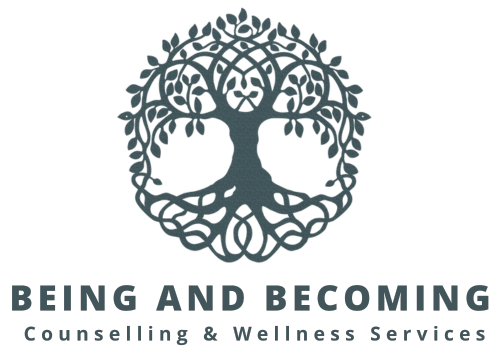BEING AND BECOMING COUNSELLING AND WELLNESS SERVICES
Mindfulness-Based Therapy
Learn to use the power of mindfulness to help you decrease stress, improve your concentration and promote emotional well-being.
Mindfulness-Based Therapy can help you:
MANAGE STRESS
REGULATE EMOTIONS
IMPROVE FOCUS
Are your automatic reactions getting the best of you?
When you’re stressed or challenged are you quick to erupt in anger or do you have a tendency to shut down? Do you cope with stress by planning and keeping busy or do you feel paralyzed worrying about everything that could go wrong?
Mindfulness-based therapy helps you step out of auto-pilot, making it possible to choose how you want to respond.
Mindfulness refers to the ability to be aware of your present moment experience, including your thoughts, physical sensations and emotions, as they are happening, without judgment.
MINDFULNESS-BASED THERAPY IN BURNABY
What is Mindfulness-Based Therapy and How Does it Work?
Mindfulness-based therapy incorporates mindfulness-based principles and mindfulness training with talk therapy. There are many different forms of mindfulness-based therapy but they all increase your capacity to “be with your experience,” as opposed to “being in your experience.” For example, being able to observe your thoughts and feelings in the moment, and recognize them as thoughts and feelings, creates separation from these experiences. This separation allows you to see your experiences more clearly, which in turn allows you to learn to relate to your thoughts, sensations and emotions differently, enabling you to choose how to respond, rather than automatically reacting to whatever is going on around you.
Mindfulness meditation is often used to develop the capacity to be aware of your present moment experience, including your thoughts, physical sensations and emotions, as they are happening, without judgment. Mindfulness meditation may involve focusing your breath, body sensations, thoughts or sounds in your environment. With practice you will learn to recognize when your mind has wandered (which it will always continue to do) and redirect it back to the focus of the meditation (e.g., breath) without judgment. This practice, trains you to see things clearly as they are happening in the moment, without judgment, supporting your work in therapy.
Learning to change your relationship to your thoughts, feelings and sensations can change everything.
Mindfulness-Based Therapy can help you with:
Chronic stress
Feelings of overwhelm
Depression
Anxiety, persistent worry or fear
Difficulty being present in the moment
Difficulty sleeping
Anger management or emotional reactivity
Feelings of dissatisfaction in your life
Chronic pain
Difficulty focusing or paying attention
Benefits of Mindfulness-Based Therapy
As you continue in mindfulness-based therapy you may notice benefits such as:
Increased capacity to turn toward your emotions, identify what they are communicating, and tend to the underlying needs
You can better control your emotional responses to challenging situations
Improved concentration and focus, making day-to-day tasks and responsibilities easier to manage
You develop greater self-awareness, including awareness of common triggers and your patterns of response
Improved stress management, which may result in decreased tension, and improved sleep and digestion
Increased ability to be present and engaged with others, resulting in improved relationships
Greater confidence in your ability to respond effectively to challenging situations
Common Questions about Mindfulness-Based Therapy
-
Mindfulness-Based Therapy is accessible both for beginners who have never engaged in mindfulness or meditation and those who have more experience. Your therapist will tailor therapy to meet you where you are.
-
New insights and skills may be acquired within the first few sessions. More noticeable changes may occur within a few weeks or a few months, including improved emotion regulation and stress management.
Lasting and more significant changes generally take several months, to a year or more, especially for more complex issues. Ongoing or periodic sessions to continue fine tuning these skills are also possible even after you feel like you feel more stable.
-
Each client’s experience with mindfulness-based therapy will look different. You might notice an increase in self-awareness and self-understanding, improvements in emotion regulation (less intense reactions to emotions) or stress management. You may also notice your thoughts have less of a hold over you or that you have greater capacity to turn toward emotions or feelings you had been avoiding.
-
Most likely. Mindfulness-based therapy typically involves practicing mindfulness exercises between sessions and reinforcing the skills learned in order to make them part of your daily routine. This allows you to transfer the skilled learned in practice into your daily life. Your therapist will work with you to determine which practices will support your therapeutic goals and help you incorporate practices into your daily life in a way that feels achievable and sustainable.
-
Many people come to mindfulness-based therapy at the recommendation of a physician or because they are looking for help with stress management and/or emotion regulation. If you are unsure whether mindfulness-based therapy is a fit for you, a conversation with your therapist can help you determine if this approach is right for you.
Therapists Offering Mindfulness-Based Therapy
-

Dr. Jan Klimas
Registered Clinical Counsellor (RCC)




